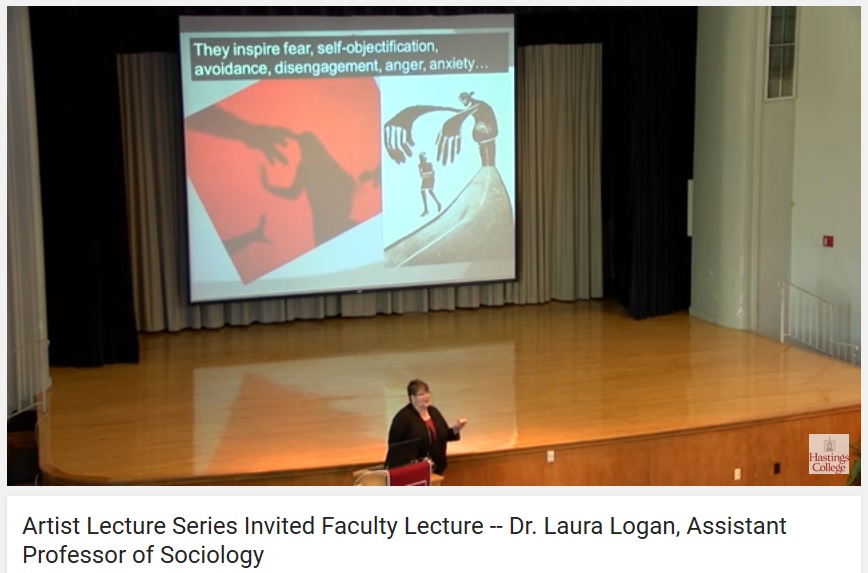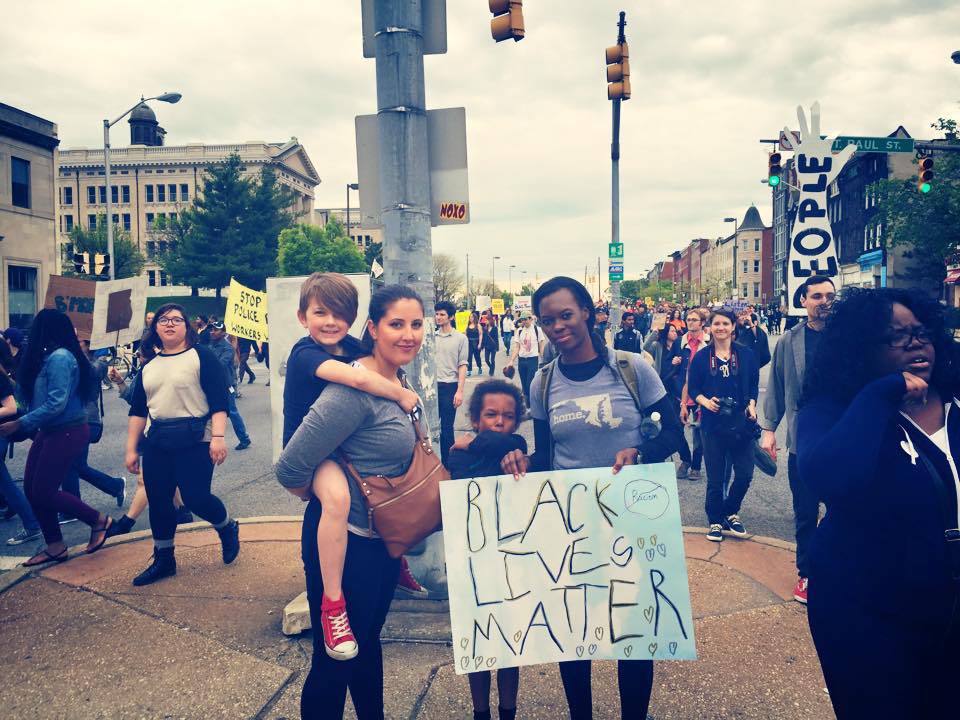We have some pretty amazing people serving on our board of directors, including Dr. Laura S. Logan, an assistant professor of sociology at Hastings College in Nebraska. In 2013, she wrote her PhD dissertation on street harassment: “Fear of violence and street harassment: accountability at the intersections.”
 Last week, she gave a lecture at her university on street harassment + intersectionality. Her lecture was covered in the campus paper by Mallory Gruben. Here is an excerpt:
Last week, she gave a lecture at her university on street harassment + intersectionality. Her lecture was covered in the campus paper by Mallory Gruben. Here is an excerpt:
“Through her research, Logan found that the underlying theme of street harassment stemmed from socialized gender roles. In the majority of the cases she studied, harassers that were “coded as masculine” targeted individuals they “coded as feminine.” Although this coding is often unique to each case, the harasser was typically male, and he typically identified the target as female or feminine.
Logan closed her lecture by offering a solution to fighting street harassment: stop gender policing. The prevalence of masculinity and femininity in cases of street harassment suggest a fulfillment of socialized gender roles. By allowing people to act within human nature instead of within set gender roles, there would be less expectation for men to be dominant and women to be sexualized, thus changing the culture of masculinity and breaking socialized gender roles.
Logan explains that in order to stop gender policing and change the culture of masculinity, everyone must play an active role.
“I don’t want anybody to be mistaken and think that means that we have to change men or that men are the ones responsible,” Logan said. “All of us—men, women, those who don’t identify as any particular gender, or gender queer—are responsible for changing the culture of masculinity.”
Agreed! You can view/listen to her full speech on YouTube.



